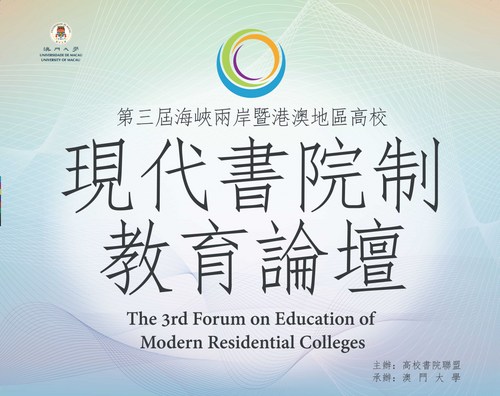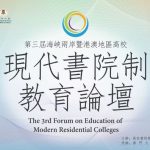 UM will hold Third Forum on Education of Modern Residential Colleges
UM will hold Third Forum on Education of Modern Residential Colleges
The University of Macau (UM) will host the Third Forum on ‘Education of Modern Residential Colleges’ on 29 and 30 July. Nearly 300 scholars, faculty members, student affairs staff, and students from more than 40 universities in mainland China, Hong Kong, Macao, and Taiwan will participate in the event. During the forum, half of the participants will stay at UM’s residential colleges. This year’s event is organised by a residential college alliance and hosted by UM. The alliance was formed in 2014 by residential colleges at eight universities, namely Beihang University, the Chinese University of Hong Kong, Xi’an Jiaotong University (XJTU), Chengchi University, Fudan University, Tsing Hua University, East China Normal University, and UM. The theme of this year’s forum is ‘Student Development in a Residential College and the Shaping of Its Educational Character’, which includes four sub-topics: 1) the assessment of residential college’s learning outcomes; 2) the collaboration between residential colleges and faculties; 3) educational programmes for student development; and 4) developing the characteristics of residential colleges. The keynote speakers are Prof David Ibbetson, president of Clare Hall at the University of Cambridge, United Kingdom; Prof Trevor Cairney, master of New College at the University of New South Wales, Australia; Dr Gong Hui, deputy Party secretary at XJTU, mainland China; and Prof Haydn Chen, vice rector (student affairs) at UM, Macao In addition to the four keynote speeches, 61 papers, 10 thematic reports, and a book collection of 34 papers selected by an editorial panel formed by UM and XJTU scholars will also be presented at the forum.


